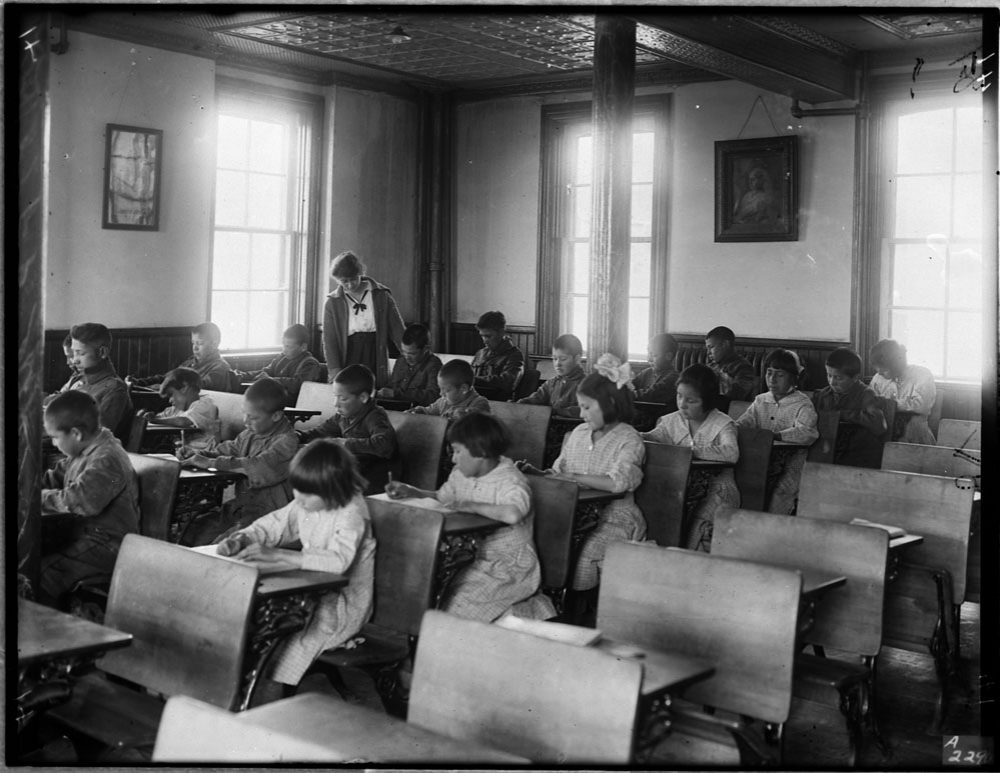A Saskatchewan organization representing 74 First Nations in the province applauded The United Church of Canada on Monday, following the denomination’s statement promising to release residential school records and provide financial assistance to Indigenous communities affected by its residential schools.
“We appreciate the acknowledgement and apology offered by the United Church,” said Federation of Sovereign Indigenous Nations (FSIN) Chief Bobby Cameron in the media release, adding that the affected peoples “shouldn’t have to continue fighting for a proper apology and compensation.”
On Monday, the United Church put out a statement supporting the search for unmarked graves at residential schools, which had first been circulated on July 15 to Indigenous community chiefs and congregations in the communities where the United Church and its predecessors had operated 15 residential schools from 1849 to 1969. As noted in the statement, there are likely “unmarked” and “undocumented” graves of children there.
In an interview with Broadview, United Church moderator The Right Rev. Richard Bott said that the United Church was a “perpetrator” in the residential school system. In the statement, he pledged to continue the process of reconciliation and promised that the United Church will “continue to share all the documents and knowledge we have” and provide “financial assistance for what community leadership deems appropriate.”
Bott explained that these offers were in part prompted by the announcement made by Tk’emlúps te Secwépemc Kukpi7 (Chief) Rosanne Casimir on May 27 that 215 children’s remains had been found at the former Kamloops Indian Residential School, which was run by the Catholic Church. Although the United Church has put forth statements since the news from Kamloops, B.C., the inclusion of possible “financial assistance” is distinct in the most recent release.
Bott said that there is not a budget officially set aside yet, but financial compensation is part of the United Church’s ongoing efforts to make amends with Indigenous communities. The United Church paid $6.45 million under the Indian Residential Schools Settlement Agreement, which helped fund healing supports for survivors. It has since donated millions to various Indigenous ministries, communities, and organizations.
More on Broadview:
- How United churches mourned the Kamloops residential school victims
- Residential school survivor wants Catholic Church to pay millions originally promised
- United church members ‘on edge’ following 2 church fires: Indigenous ministries exec
In 1986, the United Church also apologized for participating in the colonization of Indigenous peoples, and in 1998, it apologized specifically for its role in the residential school system and re-affirmed that apology in 2018.
The parameters and scope of the financial assistance offered to Indigenous peoples affected by United Church-run residential schools in the most recent statement has yet to be defined.
“We’re in conversation right now, both internally and with the Indigenous communities to understand what is needed,” Bott said. “We’re in the process of finding the funds that will support the work that needs to be done.”
But Bott added that he is “completely” confident that the United Church will find the means and funds to provide the financial assistance. He said that the offer has no expiration date. He underscored that the United Church’s priority is listening to what Indigenous communities want during this time, and the lack of a definite timeline is meant to accommodate the various paces that affected Indigenous communities want to move at.
“Each of those communities will have different needs, different traditions, different ways,” he said.
When asked about specific needs these Indigenous communities have communicated to the United Church, Bott said that the conversations are still in a preliminary state. Pledges to open records and provide financial assistance are measures that organizations like the FSIN want to see from all denominations.
“These survivors and their families have suffered enough,” Cameron said in the media release. “We ask that other church denominations that had a hand in these religious institutions to immediately follow along.”
***
Stephanie Bai is a summer intern at Broadview.
We hope you found this Broadview article engaging.
Our team is working hard to bring you more independent, award-winning journalism. But Broadview is a nonprofit and these are tough times for magazines. Please consider supporting our work. There are a number of ways to do so:
- Subscribe to our magazine and you’ll receive intelligent, timely stories and perspectives delivered to your home 8 times a year.
- Donate to our Friends Fund.
- Give the gift of Broadview to someone special in your life and make a difference!
Thank you for being such wonderful readers.
Jocelyn Bell
Editor/Publisher


Comments